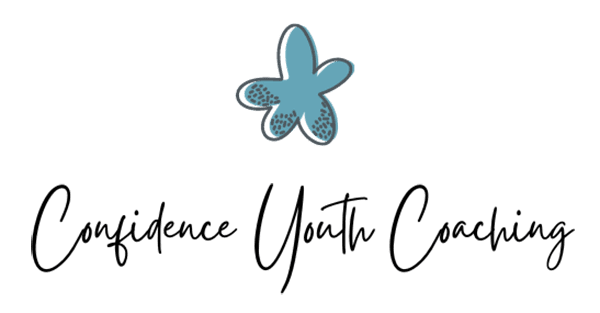Executive Function Coaching
We provide coaching services for teenagers and young adults utilizing evidence-based models and techniques to enhance executive function skills. These services are flexible and can be delivered in various settings, including homes, schools, colleges, our center, or virtually (Gr 5-12).
Key Skills Needed For Life And Learning
Executive function is indeed a crucial aspect of education, playing a pivotal role in academic achievement, career progression, and interpersonal relationships. It empowers us to plan, prioritize, maintain focus, and manage impulses, behaviors, and emotions. Enhancing executive function skills can greatly improve cognitive and social functioning.
It’s important to note that we aren’t inherently born with executive function and self-regulation skills, but we can develop them over time. These skills rely on three core aspects of brain function: working memory, mental flexibility, and self-control.
- Working memory – functions as our mental workspace, enabling us to hold and manipulate information briefly.
- Mental flexibility – allows us to adapt to new situations, shift attention between tasks, and navigate different demands.
- Self-control – is crucial for mindfulness, monitoring, and governing our emotions, actions, and responses.
Executive function and self-regulation are particularly vital for academic success, encompassing skills like concentration, strategic planning, goal revision, self-discipline, and advocacy. Students with conditions such as ADHD, Autism, LD, Dyslexia, and others may encounter challenges with executive function, affecting their ability to meet academic demands.
Early development of executive function and self-regulation skills is essential for children to realize their potential and achieve their objectives, positively influencing their social and adaptive skills. Activities fostering social connections, abstract thinking, and self-control provide children with vital tools for success (https://developingchild.harvard.edu/science/key-concepts/executive-function/)
Navigate School Learning Platform
- To stay organized and on top of your academic responsibilities, it’s important to learn how to navigate Learning Management System (LMS) like Google Classroom, Canvas, or StudentVue to view assignments, due dates, grades, and submitted work.
- To regularly check and respond to emails from teachers and counselors for feedback and support.
- To organize your workload, consider integrating online homework postings with a planner or agenda book, and create a calendar system to keep track of all important dates and activities.
Self-Advocacy
Strategies to help students improve their performance and learning outcomes:
- Students can self-monitor their work, recognize errors, and identify patterns to avoid repeating mistakes. Understanding their own learning style and organizing strategies can also be helpful.
- It’s important to teach students to self-advocate for their IEP or 504 plan and ask for accommodations or modifications.
- Consistently checking in with their progress, knowing when to ask for help, and creating systems for storing and accessing learning strategies can also be useful.
Focus and Plan Hourly Time
- To improve time management skills, it’s important to develop a sense of time passage and learn to recognize and avoid distractions.
- You can estimate how long tasks will take and create time markers to help you stay on track.
- Additionally, practicing redirecting your attention back to the task at hand and regulating your focus can help you stay organized and efficient.
Plan Tasks
- To break down assignment instructions, you can start by identifying the ‘Done Goal’, which is the endpoint of the task.
- From there, you can plan backward and determine the steps needed to achieve the goal.
- It’s also important to identify the materials needed and anticipate any obstacles that may arise, along with possible solutions.
- Finally, creating a positive work mindset and internal self-talk can help you initiate the steps of the task and avoid procrastination.
Organize
To strategize on organizing personal materials:
- Use folders or binders to separate different subjects or projects.
- Label folders or binders clearly to make them easy to identify.
- Keep a planner or calendar to schedule and keep track of assignments and deadlines.
- Use dividers or tabs within folders or binders to further organize materials.
- Regularly clean and declutter personal spaces to maintain organization.
- Use digital tools like file folders and email filters to keep digital files organized.
Prepare for Exams
- Create a study guide, start by outlining the main topics or concepts covered in the material.
- Break down each topic into subtopics and list important information under each one.
- Use visual aids like diagrams or charts to help organize the information.
- To move information from short to long-term memory, try using memory techniques such as repetition, visualization, and association. These strategies can help reinforce the material and make it easier to recall later.
- Create a realistic study schedule that works for you with flexibility to make changes.
- Take breaks and prioritize self-care to avoid burnout.
Plan Daily Time
Steps to help you schedule daily commitments and balance your obligations:
- Create a list of all your commitments, including school/work, extra-curricular activities, and personal interests.
- Prioritize your commitments by importance and deadline.Use a planner or calendar to schedule specific times for each commitment.
- Break down larger projects or assignments into smaller tasks to make them more manageable and schedule time for each task.
- Be realistic about how much time you can dedicate to each commitment.
- Allow for some flexibility in your schedule to accommodate unexpected changes or emergencies.
- Regularly review and adjust your schedule as needed. Remember, finding balance is not about trying to do everything at once, but rather about prioritizing and managing your time effectively.



